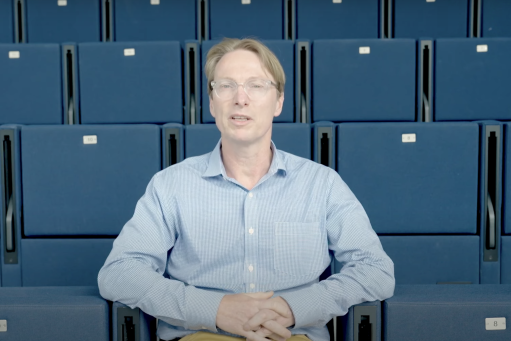Why Value Investing is Making a Comeback
Professor Tano Santos, the Faculty Director of Value Investing and Advanced Value Investing programs at Columbia Business School, outlines the reasons why value investing is returning to a period of ascendancy.
Q: Why did we see such a large shift to growth over the past decade?
Tano Santos: Well, there was a real technological revolution taking place. Remember we have lived through the mobile platform revolution, the advent of the cloud, of software as a service. There was a real technological innovation that has generated enormous value for society. There's no doubt about that. The question is always whether some of that value is going to accrue to shareholders, what portion of it is going to go to consumers or to shareholders, and that depends fundamentally on whether the business operations of the firms ushering that revolution are protected by barriers to entry. The market gets excited about these new technologies and forgets to ask the fundamental question: whether the value that these new technologies are bringing about is going to be appropriated by shareholders or by consumers. This is exactly what value investors are asking themselves all the time, and that's why they miss on growth sometimes because they see that the biggest share of the value created by those technologies is going to accrue to consumers, not to shareholders
Q: Based on current market conditions, are we seeing a return to value?
Tano Santos: Certainly, market value has not performed well, and what we mean by value is quantitative value; the strategy of buying diversified portfolios of low multiple stocks, low market-to-book stocks. Over the last decade, low interest rates and a higher appetite for risk have fueled this outside performance of growth. Now that both things have changed—interest rates are on the way up and the appetite for risk is not what it once was—of course value is coming up on account of the fact that investors are now required to look more closely at the underlying quality of the business operations of the firm. So certainly, value is back, it never went away, but certainly this market is more conducive to a successful value investing strategy.
Q: You’re a regular at Warren Buffett’s shareholder meetings. What’s your take on his investment philosophy?
Tano Santos: It's always a pleasure to go to Omaha for many reasons. We see a lot of friends from the center. We take advantage of the shareholder meeting to organize the “From Graham, Buffett and Beyond” dinner to meet alarms and friends of the center. And I'm always in awe of seeing Warren Buffett and Charlie Munger field questions from the shareholders for several hours with their usual intelligence with humor. It's really quite something to see. But let me actually pick a quote from the 2021 annual report—something that Warren Buffett says that we repeat to our students in the classroom:
“Charlie and I are not stock-pickers; we are business pickers. We own stocks based upon our expectations about their long-term business performance and not because we view them as vehicles for timely market moves.”
This is the key idea: we as value investors look at the underlying quality of the business operations of the firm, assess the valuation, and if these companies are trading at a sufficient margin of safety, we take a position in them. But the underlying principle is always the quality of the business operations of the firm.
More Webinars

What Will Drive the Global Markets in 2023?
Columbia Business School Professor Abby Joseph Cohen recently joined former Dean Glenn Hubbard to discuss the forces that could shape the economy and markets in the year ahead.

5 Questions About Value Investing and Finance
Professor Tano Santos, the Faculty Director of Value Investing and Advanced Value Investing programs at Columbia Business School, discusses the school’s approach to teaching value investing and finance.

How Will Working From Home Impact Office Real Estate?
Stijn Van Nieuwerburgh, the Earle W. Kazis and Benjamin Schore Professor of Real Estate at Columbia Business School, discusses his new research on the impact of remote work on the New York City commercial real estate sector.

5 Questions About Real Estate and Finance With Professor Stijn Van Nieuwerburgh
Columbia Business School’s Earle W. Kazis and Benjamin Schore Professor of Real Estate Stijn Van Nieuwerburgh discusses the growing use of data in real estate and the school’s latest curricular innovations.
Rise to the challenge.
The COVID-19 pandemic has changed the world of business, while bringing historical inequities and injustice into sharp relief.
Subscribe to Leading Through Change to receive the latest insights from Columbia Business School to help you navigate this unprecedented time.
